Why go after long-tail keywords?
out of over twenty options
Rank Tracker SEO software comes with 24 keyword research tools. You can discover the keywords that you already rank for, find those keywords that your competitors rank for, and use a number of semantic keyword research methods to find related questions, related searches, and autocomplete suggestions. Some of those are general-purpose SEO tools and will deliver a mix of both long-tail and short-tail keywords, while others are designed specifically for finding long-tail keywords. Rank Tracker also comes with filters that will help you isolate long-tail keywords from the lists that contain both long and short keywords.
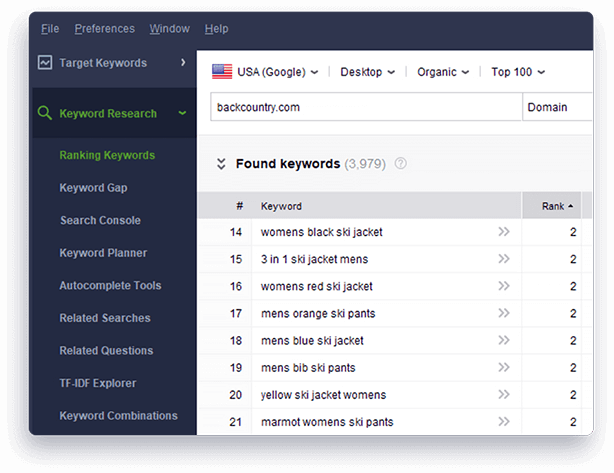
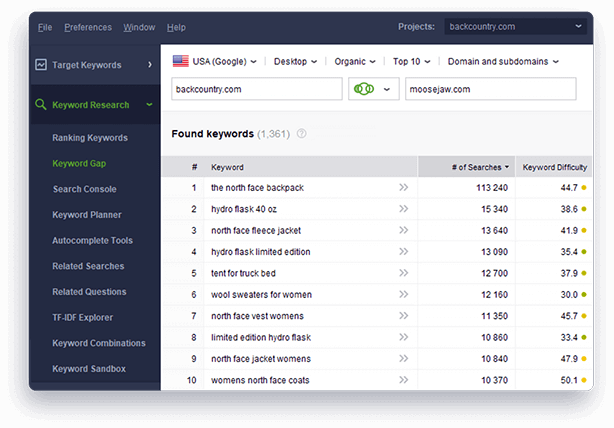
for you and your competitors
Enter any website or page, be it yours or your competitors', and discover top-performing keywords in any of the most popular search engines. This will give you an understanding of which keywords work well and provide you with a direction for future keyword research and search engine optimization. Furthermore, you can enter up to five competitor websites and discover those keywords that they rank for and you don't. It might be a good idea to borrow those keyword ideas right away — they've been battle-tested by your competitors and proved useful, so there is no reason you shouldn't be using them in your SEO effort.
using semantic research methods
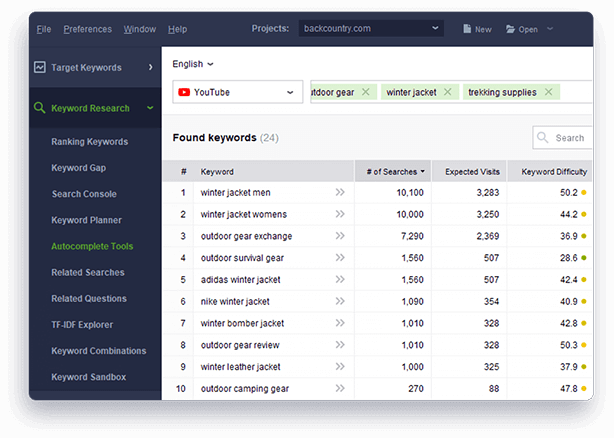
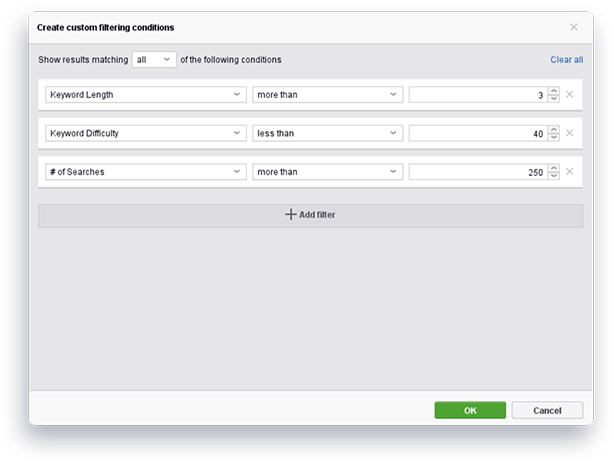
by applying custom filters
Depending on the keyword generators you choose, there will be varying shares of short-tail keywords mixed in with the long-tail ones. Luckily, each keyword finder is equipped with customizable filters and one of those filters allows you to define the number of words you want in your keywords. Now, long-tail keywords are not always long in terms of the number of words, but, as a rule of thumb, they do tend to be three words or longer. Additionally, the results of all of your keyword searches are added to the keyword sandbox, which means you don't have to filter each of your lists individually — you can do all of them once they are pulled together.
by analyzing keyword statistics
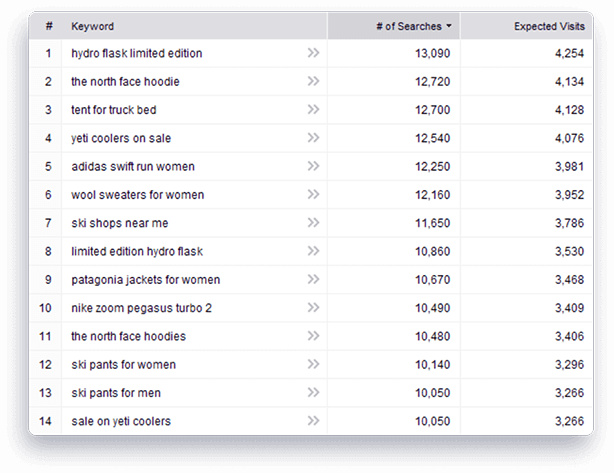
Rank Checker accommodates the full cycle of long-tail research:
- 24 research tools
- Ranking keywords
- New keyword ideas
- Customizable filters
- Keyword statistics
- PPC information




FAQ
What is a long tail keyword?
Why use long tail keywords?
How do I find long tail keywords?
Can I use your keyword tool for free?

